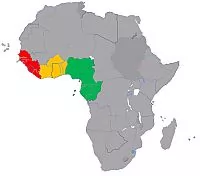Who
President Muhammadu Buhari; ruling party, All Progressives Congress (APC); Senate Majority Leader Ali Ndume; Senator Abiodun Olujimi (APC); Budget Minister Udoma Udoma.
What, Where & When
President Buhari is expected to present the 2017 budget to the senate on 1 December. First however, the president is compelled by the 2007 Fiscal Responsibility Act to submit a three-year economic plan to the legislature. Buhari's plan is facing active opposition from parliamentarians including members of Buhari's own APC – raising the specter of another delayed budget and highlighting the problematic relationship between the government and the legislature.
The Nigerian senate has refused to accept the projections in the 2017-2019 economic plan President Muhammadu Buhari sent to the senate in October. The senators said during a 23 November plenary that the projections are unrealistic. "This document is not what we expected," Senator Abiodun Olujimi (APC) said, "it shows the incompetence of those who prepared the document1".
- In the preliminary plan presented to the senate in October, the Buhari government projects oil production in 2017 will be 2.2m barrels per day (bpd) and the average exchange rate will be NGN290 per dollar. It also projects a 3.02% GDP growth and a 12.92% inflation rate for the same year. The senators at the plenary expressed belief that these assumptions don't reflect the true state of the economy.2
- The economy has been shrinking since the first quarter of this year. In Q3, it shrank by 2.24% largely due to a hefty slump in the oil sector, where the militancy in the Niger Delta has been disrupting output. Only about 1.65mbpd of crude was put out in the last quarter, yet the impact of this shortfall is huge because the government traditionally relies on petrodollars for two-thirds of its revenue.
- Inflation hit 18.3% in the last quarter and the exchange rate has officially been around NGN305 per dollar since the central bank floated the naira in June. Moreover, there is still severe forex scarcity in the country. These days, banks in Nigeria are rationing dollars and the exchange rate in the parallel market is over NGN450 per dollar.
There were initial calls during the 23 November plenary to reject the president's plan outright, but the senators later agreed to refer the plan to its finance committee for revision ahead of his budget presentation next month.
Outlook
President Buhari's APC has 60 of 109 senate seats and 225 of 360 in the House of Representatives. Nevertheless, there is no automatic majority in support of the government programme. We observe that MPs of President Buhari's party APC are among those who have opposed his economic plan in view. For example, when the president's team first submitted the plan to the senate in October, Majority Leader Ali Ndume (APC) said the document was empty because it didn't contain the necessary backup such as a 2016 budget report.
The 2017 budget should have been presented in October. Budget minister Udoma Udoma suggested in a news report3 that the Senate was responsible for the delay. In response, Senator Ndume said the president's team were over three weeks behind schedule in submitting the economic plan and have bungled the paperwork. The tenor of debate will likely continue when the budget itself is presented in December. Amid this war of words and paper, another budget delay looks likely.
The current dispute between parliament and the presidency is reminiscent of the 2016 budget delay – where after months of deadlock parliament eventually accepted the bill only on May 2016. Fiscal risk remains high with a stable outlook.
Footnotes
1 http://punchng.com/senate-condemns-2017-draft-budget-says-assumptions-unrealistic/
2 http://www.thisdaylive.com/index.php/2016/11/24/buhari-to-present-2017-budget-dec-1/
3 http://placng.org/wp/2016/11/senate-denies-responsibility-in-delaying-2017-budget/
The content of this article is intended to provide a general guide to the subject matter. Specialist advice should be sought about your specific circumstances.


